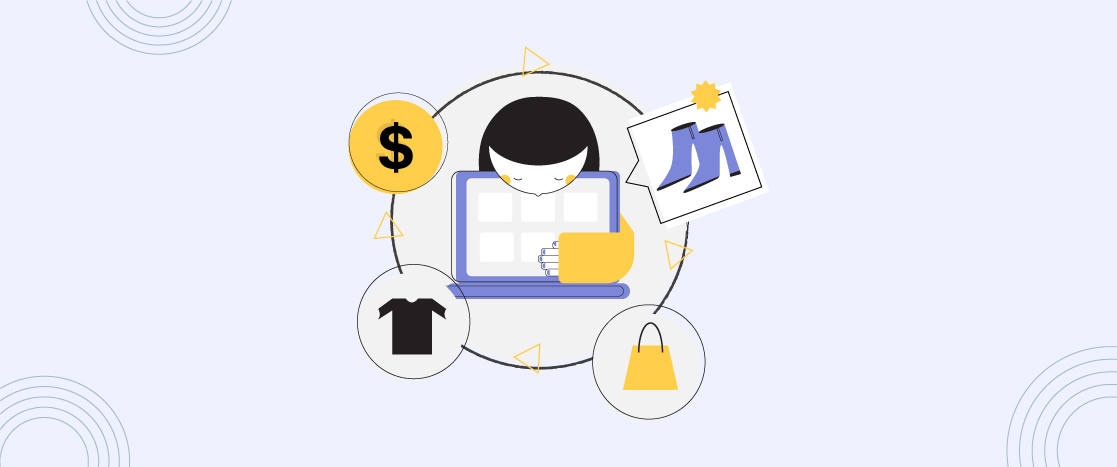
How to Choose the Right Suppliers for Your Dropshipping Business
The success of your dropshipping business hinges on choosing the right suppliers. Suppliers are the backbone of your operations, handling product sourcing, storage, and delivery. A reliable and efficient supplier ensures seamless operations, high-quality products, and satisfied customers, essential for building a strong reputation and achieving long-term growth.
Conversely, partnering with the wrong supplier can lead to significant issues. Delays in shipping, poor product quality, or lack of communication can harm your business’s reputation, resulting in happier customers and lost sales. That’s why carefully selecting suppliers is one of the most critical decisions you’ll make in your dropshipping journey.
In this guide, we’ll discuss the key factors to consider when choosing suppliers, including assessing product quality, reliability, pricing, shipping policies, and customer support. We’ll also explore where to find top suppliers for dropshipping, how to verify their credibility, and tips for avoiding common mistakes.
Whether you’re looking for branded, high-end, or the cheapest suppliers, this comprehensive guide will help you make informed decisions. Choosing suitable suppliers can build a solid foundation for your business and ensure a positive customer experience. Get ready to take the guesswork out of finding the perfect dropshipping partners.
Understanding the Role of Suppliers in Dropshipping
In a dropshipping business, suppliers play a pivotal role. They are responsible for sourcing, stocking, and shipping the products you sell. Unlike traditional e-commerce models, where you manage inventory, dropshipping lets you focus on marketing and customer service while suppliers handle the logistics. This setup makes finding suitable suppliers crucial to your business’s success.
Reliable suppliers act as the backbone of your operations. They ensure that the products you list on your store are available, meet quality standards, and reach your customers on time. A good supplier can help you build a positive reputation and attract repeat customers, while unreliable ones can harm your brand’s credibility.
There are various types of dropshipping suppliers to choose from. Branded dropshipping suppliers focus on providing products under specific brands, allowing you to build a unique identity. High-end suppliers cater to premium markets, offering luxury products. On the other hand, some suppliers emphasize affordability, positioning themselves as the cheapest option. Understanding these distinctions will help you align supplier choices with your business goals.
Key Factors to Consider When Choosing Suppliers
Selecting suitable suppliers is crucial for the success of your dropshipping business. Suppliers play a significant role in determining your business’s efficiency, profitability, and reputation, so it’s essential to evaluate them carefully.
Product quality is key, as it directly influences customer satisfaction and trust in your brand. Reliable suppliers who consistently deliver high-quality products ensure a positive customer experience. Additionally, pricing plays a critical role; balancing competitive costs with quality is vital to maintaining healthy profit margins.
Other important considerations include shipping times and policies, as fast and efficient delivery is a competitive advantage in e-commerce. Customer support and communication are also essential, ensuring issues are resolved quickly and professionally.
By assessing these factors, you can select suppliers who align with your business goals and set a solid foundation for long-term success.
Quality of Products Offered
The quality of the products you sell is the foundation of your dropshipping business. High-quality products are directly tied to customer satisfaction, positive reviews, and repeat purchases. Partnering with high-quality dropshipping suppliers ensures that your customers receive items that match or exceed their expectations, ultimately enhancing your brand reputation.
To ensure product quality, it is essential to assess potential suppliers thoroughly. Requesting samples is a critical step in this process. Samples allow you to inspect the product firsthand, verifying its quality, durability, and consistency with descriptions and images. This step also helps identify any discrepancies before listing the product in your store.
By prioritizing quality, you not only meet customer expectations but also minimize returns and complaints, which can save time and resources. Building relationships with suppliers who consistently deliver quality products is vital for long-term success.
Supplier Reliability and Reputation
Reliability is one of the most critical factors when selecting a dropshipping supplier. A reliable supplier ensures that orders are fulfilled accurately and on time, maintaining smooth business operations and customer satisfaction. Dependable suppliers reduce the risk of delays or errors that could harm your reputation.
Researching a supplier’s reputation is essential to gauge reliability. Reviews, ratings, and testimonials from other drop shippers provide valuable insights into their performance. Look for suppliers with a proven track record of positive feedback, as this reflects their consistency and professionalism.
In addition to online reviews, consider asking for references or checking industry forums for recommendations. Establishing a partnership with a supplier who prioritizes reliability will give you the confidence to focus on growing your business without worrying about operational setbacks.
Competitive Pricing and Cost Analysis
Pricing significantly impacts your profit margins and overall competitiveness in the market. While it may be tempting to choose the cheapest dropshipping suppliers, focusing solely on price can compromise quality and reliability. Striking a balance between affordability and value is essential.
When evaluating suppliers, analyze their pricing structures, including product costs, shipping fees, and any additional charges. Be cautious of hidden fees, such as restocking costs or handling charges, which can impact your profitability. Comparing multiple suppliers can help you identify the best overall value for your business.
Additionally, consider negotiating terms with your chosen supplier. Many suppliers are open to discussions about bulk discounts or flexible payment options, which can improve your profit margins. Selecting suppliers with competitive and transparent pricing ensures your business remains financially viable.
Shipping Times and Policies
Shipping is a vital component of your dropshipping business, as it directly affects customer satisfaction and loyalty. In today’s competitive e-commerce landscape, fast and efficient shipping is expected. Partnering with suppliers who offer reliable shipping options can give you a significant advantage.
When evaluating suppliers, review their shipping policies in detail. Consider factors such as delivery timeframes, shipping methods, and the availability of tracking options. Suppliers with streamlined shipping processes can ensure orders reach customers promptly, reducing the likelihood of complaints or negative reviews.
Additionally, assess a supplier’s ability to handle international shipping if you target a global audience. Reliable suppliers with strong shipping networks can help you expand your reach while maintaining delivery efficiency. By prioritizing shipping reliability, you can enhance your customer experience and differentiate yourself from competitors.
Customer Support and Communication
Strong customer support and communication are critical when choosing a dropshipping supplier. Effective communication ensures that issues are resolved quickly and efficiently, minimizing disruptions to your business. A supplier who values clear and professional communication is easier to work with and fosters a stronger business relationship.
Before committing to a supplier, test their responsiveness by reaching out with questions or concerns. Pay attention to how promptly and thoroughly they respond. Reliable suppliers will provide clear answers and demonstrate a willingness to assist, reflecting their commitment to customer service.
In addition, consider the availability of support channels such as email, phone, or live chat. Having multiple ways to contact your supplier can be invaluable in urgent situations. Partnering with a supplier who prioritizes customer support ensures smoother operations and helps address challenges proactively.
Where to Find the Best Suppliers for Dropshipping
Locating the best suppliers for your dropshipping business requires exploring reliable sources and platforms. The choice of suppliers often depends on your target market and whether you prioritize domestic or international partnerships.
Domestic suppliers can offer significant advantages to those targeting local markets. For example, the best US suppliers for dropshipping typically provide faster shipping times, better customer service, and more accessible communication. This can lead to higher customer satisfaction and fewer issues related to delays or miscommunication.
International suppliers can be great if you focus on a global audience or access a broader range of products. Global suppliers often provide lower production costs, giving you a diverse product selection at competitive prices. However, you may need to navigate longer shipping times, customs regulations, and potential language barriers.
Using tools and platforms is a practical way to find good dropshipping suppliers. Shopify, for instance, integrates with some of the best dropshipping suppliers, streamlining the sourcing process. Online directories and marketplaces like AliExpress and SaleHoo also connect drop shippers with a vast network of vetted suppliers.
Best US Suppliers for Dropshipping
Collaborating with US-based suppliers offers numerous benefits for dropshipping businesses, particularly if your target audience is in the United States. One of the key advantages is faster shipping times, which can significantly enhance customer satisfaction by meeting or exceeding delivery expectations. Additionally, many US suppliers provide superior customer service, making communication and issue resolution smoother and more efficient.
US suppliers often have well-established systems for order fulfillment and tracking. These efficient processes ensure that orders are processed and shipped accurately, reducing the likelihood of delays or errors. Moreover, US-based suppliers typically have a better understanding of local market trends and customer preferences. This insight can help you curate a product selection that resonates with your audience, improving sales and customer loyalty.
Working with US suppliers also simplifies navigating regulations, as there are fewer concerns about customs or international shipping complexities. While products from US suppliers may sometimes come at a higher cost than international options, the advantages of speed, reliability, and customer satisfaction often outweigh the price difference. For dropshippers focusing on the US market, finding the best US suppliers for dropshipping is a smart strategy for building a competitive edge and a strong brand reputation.
Global vs. Local Dropshipping Vendors
Choosing between global and local dropshipping vendors is a critical decision that depends on your business’s goals and target audience. Global suppliers often provide access to a vast array of products at competitive prices. By sourcing from international suppliers, you can offer unique or niche products that may not be readily available locally. This variety can help you cater to a wider customer base and stand out from competitors.
However, working with global suppliers comes with its challenges. Longer shipping times can affect customer satisfaction, and navigating customs regulations and import taxes can add complexity to your operations. Additionally, potential language barriers or time zone differences may make communication more difficult.
On the other hand, local suppliers offer faster delivery, which is a significant advantage in meeting customer expectations. They also tend to provide easier and more efficient communication, which helps resolve issues promptly. Local vendors are often more familiar with regional market trends, allowing you to tailor your product offerings to specific customer preferences.
Deciding between global and local suppliers requires evaluating your business priorities, including product variety, shipping speed, and operational complexity. Striking the right balance between global reach and local convenience can set your dropshipping business on a path to success.
Tools and Platforms to Source Dropshipping Suppliers
Using the right tools and platforms to find suppliers can simplify the process of building a successful dropshipping business. Platforms like Shopify are especially beneficial as they integrate with some of the best Shopify dropshipping suppliers. These integrations allow you to easily search for products, vet suppliers, and import items into your online store with just a few clicks.
Shopify apps such as Oberlo and Spocket connect dropshippers with reputable suppliers, offering features like automated inventory updates and order tracking. These tools streamline operations, saving you time and effort. Additionally, Shopify’s platform provides reviews and ratings for suppliers, helping you make informed decisions.
Beyond Shopify, there are other resources to consider. Supplier directories such as SaleHoo and Worldwide Brands compile lists of verified suppliers across various niches, making it easier to find good dropshipping suppliers suited to your business. Online marketplaces like AliExpress and Alibaba also offer extensive product selections, allowing you to connect directly with manufacturers and wholesalers.
By leveraging these tools and platforms, you can efficiently discover and partner with reliable suppliers. Choosing the right resources ensures that you can source high-quality products, maintain seamless operations, and grow your dropshipping business with confidence.
Verifying Supplier Credibility
Verifying their credibility before committing to a supplier is an essential step to minimize risks and ensure a reliable partnership. A credible supplier forms the backbone of your dropshipping business, influencing product quality, shipping efficiency, and customer satisfaction.
Begin by researching the supplier’s background. Check for valid business licenses, certifications, and affiliations with reputable organizations to confirm their legitimacy. Review customer reviews, ratings, and testimonials from other drop shippers to gauge their reputation. Consistent positive feedback indicates reliability, while frequent complaints about delayed deliveries, poor communication, or product inconsistencies are red flags to consider.
Requesting product samples is another effective way to assess the supplier’s offerings firsthand. Evaluate the quality of the products, their alignment with descriptions, and the efficiency of the supplier’s shipping processes.
By thoroughly vetting your supplier, you can avoid potential setbacks, build a trustworthy partnership, and establish a strong foundation for your dropshipping business.
Conducting Background Checks
Conducting a thorough background check on potential suppliers is a critical step in ensuring the legitimacy and reliability of your dropshipping partners. Verifying their credentials helps protect your business from scams, unreliable vendors, or suppliers who fail to deliver on their promises. Start by looking for key indicators such as valid business licenses, certifications, and affiliations with reputable organizations or trade associations. These credentials demonstrate that the supplier operates legally and adheres to industry standards.
Research the supplier’s history to assess its reputation in the market. Look for customer reviews, ratings, and testimonials from other drop shippers. Platforms like Trustpilot, supplier directories, and e-commerce forums often provide valuable insights into a supplier’s track record. Pay attention to any red flags, such as frequent complaints about delayed deliveries, poor communication, or inconsistent product quality.
Additionally, consider reaching out directly to the supplier with questions to gauge their responsiveness and professionalism. Reliable suppliers will be transparent about their operations and provide satisfactory answers. By thoroughly vetting potential suppliers, you can avoid unnecessary risks and build a solid foundation for your dropshipping business, ensuring smooth and reliable operations.
Requesting Product Samples
Requesting product samples is one of the most effective ways to evaluate a supplier’s reliability and the quality of their offerings. This step allows you to inspect the products firsthand, ensuring they meet your standards and align with the descriptions provided by the supplier. By doing so, you can make an informed decision about whether to partner with the supplier.
When evaluating samples, pay close attention to several factors. First, check if the product matches the supplier’s description and photos. Assess its durability, functionality, and overall quality to determine if it meets customer expectations. This is particularly important for branded or high-end products, where quality is a key selling point.
Additionally, evaluate the supplier’s packaging. Well-packaged products not only protect items during shipping but also enhance the customer’s unboxing experience. Poor packaging, on the other hand, can lead to damaged items and dissatisfied customers.
Requesting samples also helps you test the supplier’s responsiveness and shipping efficiency. Monitor how quickly they fulfill sample requests and whether the products arrive on time. This process gives you valuable insights into the supplier’s reliability and can help you build confidence in their ability to support your dropshipping business effectively.
Reviewing Terms and Conditions
Carefully reviewing a supplier’s terms and conditions is crucial in establishing a successful partnership. The terms and conditions outline the supplier’s policies on key aspects such as returns, refunds, cancellations, and order modifications. Understanding these policies ensures that you are fully aware of how potential issues will be handled, protecting your business and ensuring smooth operations.
Start by assessing the supplier’s return and refund policies. Clear and fair terms reflect a professional supplier who values transparency and customer satisfaction. Look for details on return timeframes, refund conditions, and whether the supplier charges restocking fees. Favorable policies are significant for minimizing disputes and maintaining customer trust.
Pay attention to any clauses related to cancellations or order changes. Some suppliers may have strict policies that could limit your flexibility, so it’s essential to understand these terms upfront. Additionally, evaluate shipping policies, including timelines and responsibilities in case of lost or damaged items.
Negotiating favorable terms can provide added protection for your business. Open communication with suppliers about their terms and conditions helps establish trust and sets the stage for a mutually beneficial partnership. By carefully reviewing these details, you can avoid unexpected issues and operate confidently.
Special Considerations for Branded and High-End Dropshipping
Some dropshipping businesses focus on branded or high-end products to target specific customer segments. These niches require extra attention when choosing suppliers.
Partnering with Branded Dropshipping Suppliers
Branded dropshipping suppliers can help you establish a unique identity by offering products from well-known or exclusive brands. This approach is ideal for building trust and attracting loyal customers. When working with branded suppliers, ensure they provide authentic products and have the proper licenses to distribute them.
Selecting High-End Dropshipping Suppliers
High-end dropshipping suppliers cater to premium markets that demand luxury products. Partnering with these suppliers allows you to target affluent customers willing to pay a premium for quality. Evaluate potential high-end suppliers based on their product selection, packaging standards, and ability to maintain a consistent supply of luxury items.
Avoiding Common Mistakes When Choosing Dropshipping Suppliers
Even experienced dropshippers can make mistakes when selecting suppliers. Avoiding these pitfalls can save you time, money, and frustration.
Focusing Only on Cost
While affordability is essential, it should not be the sole factor in your decision. The cheapest suppliers may compromise on quality or reliability, leading to dissatisfied customers. Aim for a balance between cost and other critical factors, such as product quality and shipping efficiency.
Neglecting Long-Term Scalability
Your business needs are likely to grow over time. Choosing a supplier who cannot scale with your business can lead to supply chain disruptions. Ensure the supplier has the capacity to handle increased order volumes and expand their product offerings as needed.
Ignoring Supplier Reviews and Ratings
Supplier reviews and ratings provide valuable insights into their reliability and service quality. Ignoring this feedback can lead to partnerships with unreliable vendors. Take the time to read reviews and watch for consistent complaints about delivery times, product quality, or customer service.
Tips for Maintaining Strong Supplier Relationships
Establishing and maintaining good relationships with your suppliers is essential for long-term success. A strong partnership can lead to better terms, improved service, and mutual growth.
Building a Partnership Mindset
Treat your suppliers as business partners rather than mere vendors. Open and transparent communication fosters trust and collaboration. By understanding each other’s goals and challenges, you can work together to achieve mutual success.
Monitoring Performance Over Time
Regularly evaluate your suppliers’ performance to ensure they continue to meet your standards. Track metrics such as order accuracy, delivery times, and customer satisfaction. Use this data to address any issues and, if necessary, renegotiate terms.
Staying Updated with Industry Trends
The dropshipping industry constantly evolves, with new suppliers, products, and tools emerging regularly. Staying informed about industry trends can help you identify better opportunities and adapt to changing market demands. Keep an eye on innovative e-commerce dropshipping suppliers who offer competitive advantages.
Conclusion:
Selecting the right supplier for your dropshipping business is one of your most important decisions. Your supplier is the backbone of your operations, influencing the quality of your products, pricing structure, shipping efficiency, and overall customer satisfaction. The right supplier can elevate your business by ensuring reliable delivery, maintaining product standards, and supporting smooth operations. Conversely, a poor supplier can result in delays, quality issues, and dissatisfied customers, ultimately damaging your brand’s reputation.
To make the best choice, carefully evaluate each supplier based on key factors such as product quality, pricing transparency, shipping policies, and customer support. Reliable suppliers deliver products that meet customer expectations and act as dependable partners, helping you navigate challenges and scale your business. Don’t overlook the importance of verifying a supplier’s credibility by checking reviews ratings, and requesting samples.
By thoroughly assessing suppliers and aligning them with your business goals, you can build a strong foundation for success. A trusted and efficient supplier partnership ensures a seamless customer experience and gives your dropshipping business the competitive edge it needs to thrive in today’s dynamic e-commerce marketplace.






